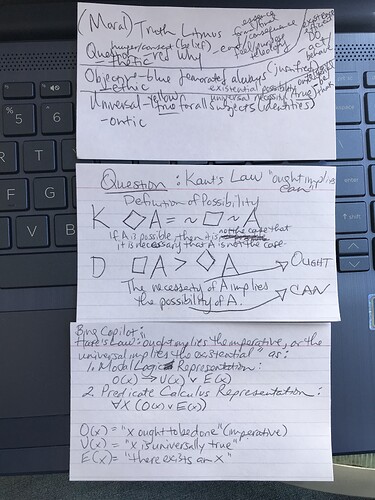Imagine if you didn’t need to do trial and error because you imagined things right/beautiful/necessary (& thus possible) the first/meta time?
Anywhayz.
I just had a glorious chat with Bing Copilot about Kant’s ought implies can (the crux of graded absolutism) and Hare’s ought implies imperative (the crux of Kierkegaard’s Subjectivity is Truth)…
Some scribblies:
